Meet Our Female Silk Road Guide - Part 2
A chat with Ms Veronika about her life as a guide
Last month we shared the first interview of our brand new ‘Meet Our Guide’ series and introduced you to Ms Almadai – one of our two beloved female guides on our 23-Day Silk Road & Stans Adventure.
With Silk Road season in full swing, we’re super excited for you to meet our other shining light and guide for the Kyrgyzstan and Kazakhstan part of this trip…Ms Veronika!
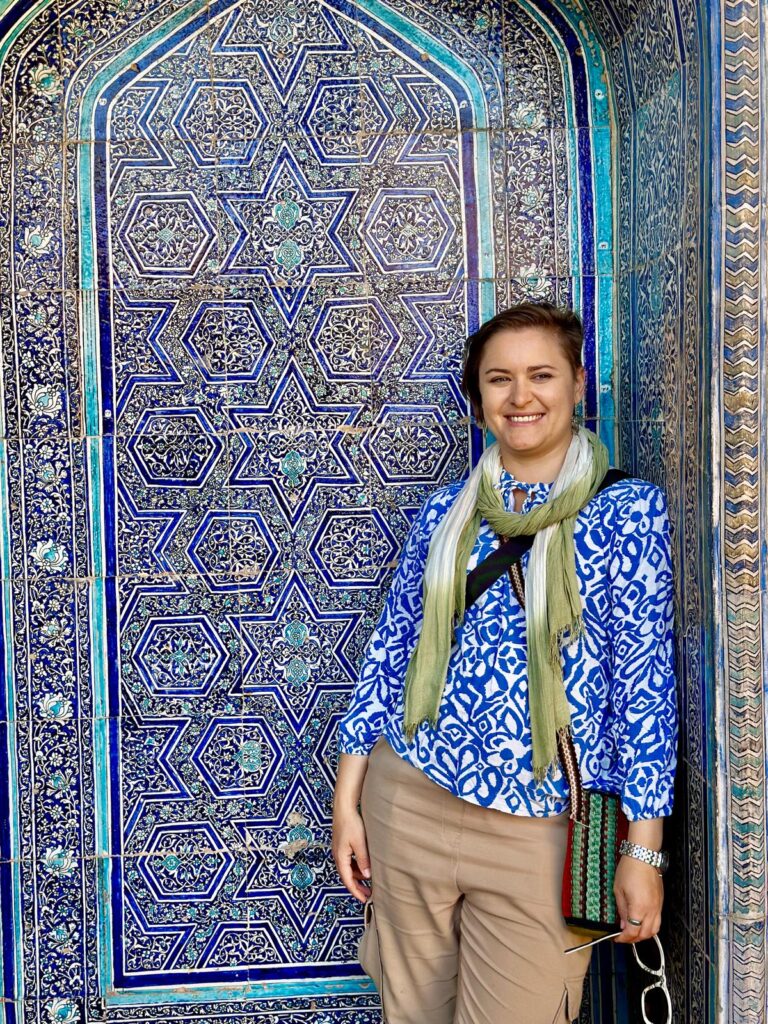
Tell us a little bit about yourself…where are you from and how long have you been guiding for?
I was born in Kyrgyzstan and come from a small, quaint town called Karakol which is actually part of the Patch Adventures’ itinerary. It’s located on the shore of Issyk Kul lake and is kind of trapped between the lake and the mountain, so it’s a really beautiful place, quiet and very cosy. I became a guide in 2011 and started guiding with Patch in 2023, which I really enjoy. Guiding is my main occupation and although it’s a seasonal job, it gives me the right amount of balance between the summer and winter seasons so works well for me.
How did you first come to be a guide? What inspired you, and what training did you have to do?
When I was 16 I moved to Bishkek, the capital of Kyrgyzstan to go to university. It sounds very early for Westerners, but that’s about the regular age in our country and quite normal. I never planned to be a guide but when I finished school, I realised I needed some sort of side income and by accident, one of the teachers at university suggested I could do a guiding course, as there was a high demand for guides at the time. Back in 2011 they were paying guides in US dollars and I was like, ‘Ooooh, US dollars. That’s nice!’ It was very appealing because it’s considered a safe currency to keep in our country.
I did the course and it took about six or seven months to be trained, mostly in the theoretical side that we need to learn to share with the guests, but working with groups too. To be honest, it was a very brief training because when I did my first tour I realised, this job is so much more than just giving people information!
Somehow, I ended up coming back each season afterwards and I’m still here!
Were there many other women also studying to become guides and was it easy for you to find work when you finished your training?
Yes, there were quite a lot of girls training like me, to become guides and guys too. I think in our country at the time, gender didn’t matter because when I was trying to find my first job, the CEO of the biggest company in Kyrgyzstan was a woman. She was basically the founder of Kyrgyz tourism and was known to anyone trying to get into the industry.
The toughest part of trying to get a job wasn’t being female, it was being inexperienced and not having any contacts in the industry because when I was going for interviews, they would try to find some connection to check my background and find out if I was trustworthy and if I would be able to manage the tour. It was tough and frustrating too – trying to get a job to get experience, but needing experience to get a job. By accident, the same lady who suggested I do the guide training happened to work for one of the tour companies, so she became my contact and vouched for me to get my first job.
Are there many female guides in Kyrgyzstan & Kazakhstan?
Surprisingly, yes! I know guys, girls and ladies who have worked in this industry for a while. I would say these are two countries in Central Asia with female guides actively working in this industry, so there’s nothing strange about that. But of course, it’s not a typical job and you spend a lot of time outside of the family house and not directly participating in what’s happening at home.
We are still a very traditional society so women are expected to be around their children, their husband and their parents so yes, people do get surprised and they do ask questions like…
“How do you manage that?” and, “Why do you ignore that part of your life?”
I explain that it’s just different for me and other girls that have been guiding for a while.
Eventually, the female guides I met at the beginning of my path chose to work in the office later in life, which is what usually happens when they start families. They get recruited as tour managers, working on the itineraries, managing other guides and guests and choose jobs where they’re not moving around so often.
I don’t have a husband and children, but I do take care of my grandmother and parents as they’re at that age and I realise there will be a point when I will have to settle down. But I hope to keep guiding as much as possible until then, because one thing I love about my job is always seeing something new, always feeling how your country is developing, because when you do move around, you see all those villages, all those guest houses and you get to catch up with all the people you work with along an itinerary.
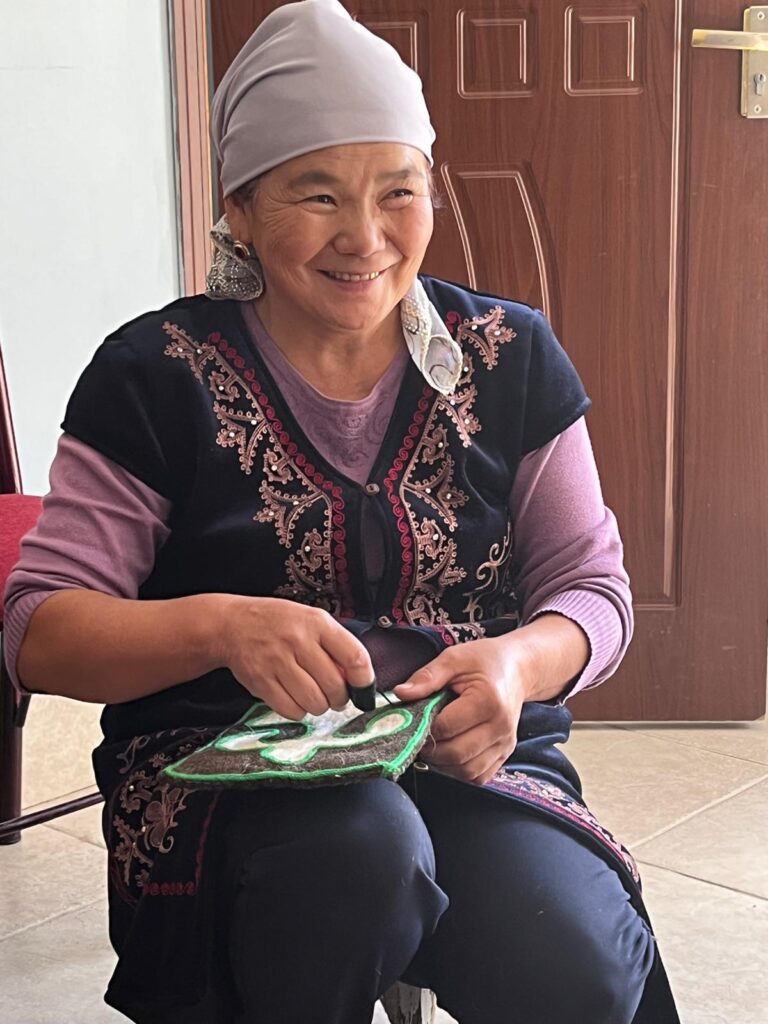
It’s heartwarming to see how the country changes and how all those people continue with their lives and it’s always very exciting to meet new people. It’s one of the beautiful things about being a guide as I find it very frustrating to be in one place! The global lockdown showed me that I’m not the kind of person that can spend a long time in one location so even if/when I do settle down, I will have to keep some sort of adventurous element in my life. I’m nomadic at heart.
Did you have to study languages through your training to become a guide?
English was my major degree at university, but I would say more practice came from my job as a guide rather than from university studies. My other language is Russian as I’m Russian born. There is quite a big Russian speaking population in Central Asia which I’m part of. I’m still learning Kyrgyz which is a bit weird, considering I live in Kyrgyzstan. I didn’t really need it growing up but I’m trying to master it at the moment.
Kyrgyz people have quite a sarcastic sense of humour, so even though it can sometimes be a little difficult to understand Aussie and Kiwi accents (only because of the different words used), we have a similar sense of humour and get each other’s jokes which makes getting along easy as we share the same mindset.
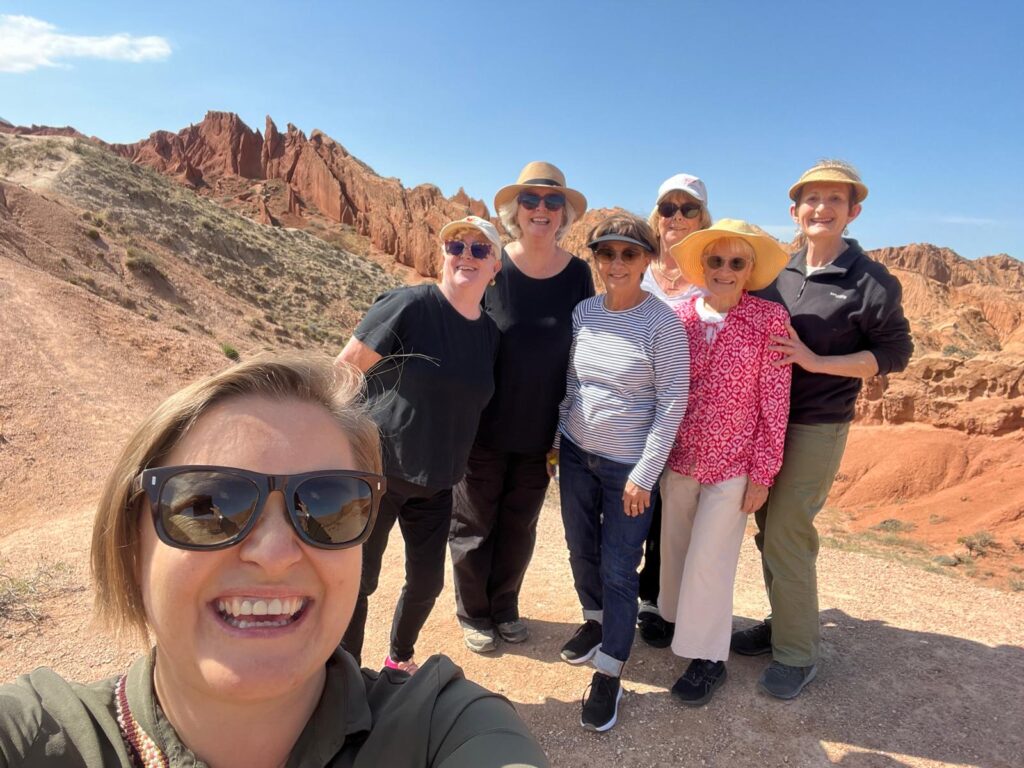
What are opportunities for education like for girls and women in Kyrgyzstan and what career paths are available to them?
There is no unique description for girls in our country because it really depends on the area you grow up in and on your family. I was lucky to have open-minded parents, though they are still traditional in many ways. They wanted me to get married and dedicate myself to my family, but things don’t always work out as planned. It was also very important to them that I go to university and get my diploma, which I did.
There are some careers in our country that aren’t considered available to women – mostly technical jobs like engineering or jobs involving heavy physical work. I find this very funny because lots of women in my country, especially in the small villages in the countryside work in the fields and look after children as well as livestock which is very demanding. I always think it’s funny when someone says a job is, “Too difficult for a woman.” as they’re much stronger than you think!
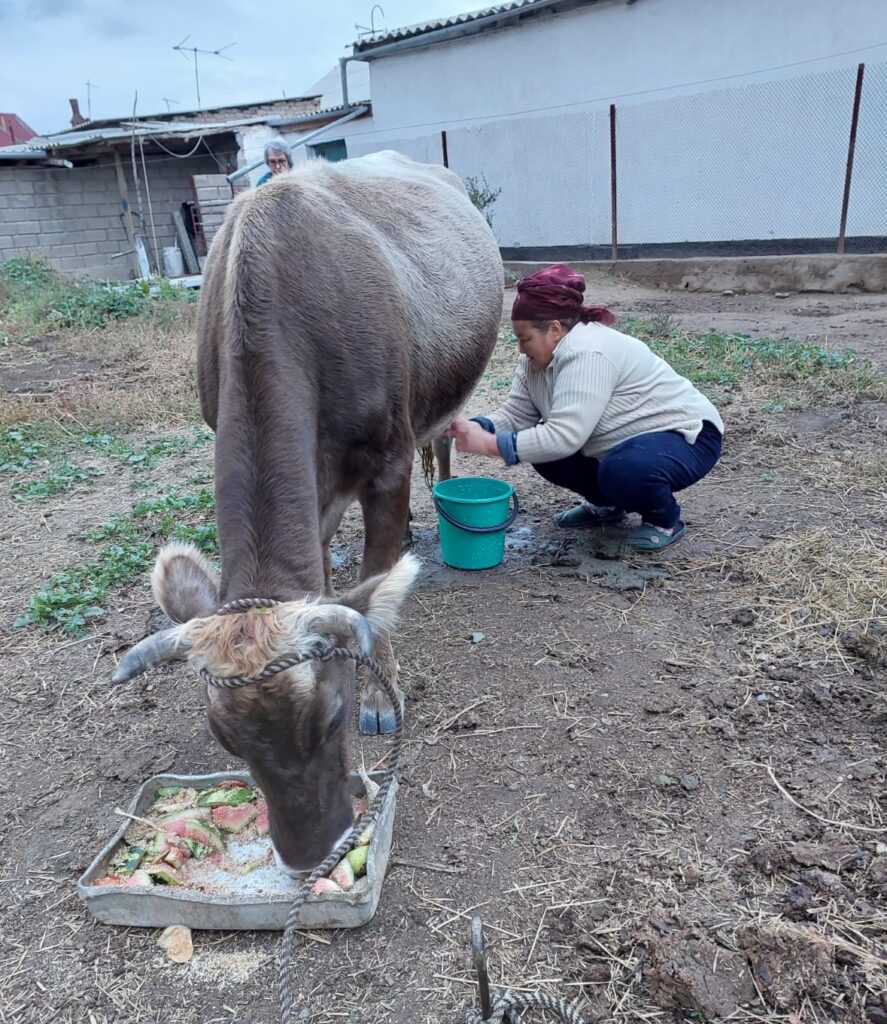
Many of the women I graduated with pursued different career paths but all created families and have children now, so typically have taken roles in office jobs. It’s difficult for them to catch up when they want to return to the career market as you have to change your family schedule and mindset to re-enter the white collar workforce. I admire them for that, because they have the courage to go back to pursuing something independent from their husbands, their parents and still take care of their children to raise them properly.
Some of those women come from very conservative families with parents that wanted them just to get some form of education because it’s difficult to be completely literate. There are girls that just get a higher education of three or four years after high school, but are not expected to pursue any career path at all – they’re encouraged, I would even say ‘brainwashed’ to enter a married life as fast as possible and have children because ‘that is what women are supposed to do’. Sometimes it works out if the girl also thinks that way and takes on the responsibility, but in some families it doesn’t and the ladies have to take their children, leave their husbands and reinvent or change everything they thought before.
How is separation and divorce perceived in your culture when women leave their husbands?
Before we exited the Soviet Union, there was government propaganda to create a family and have as little divorce as possible – even to a ridiculous level where people were showing up to official departments to apply for divorce and were told to, ‘Come back next month so you don’t ruin our nice statistics this month.’
As in my mum’s case, divorce can be viewed as a personal tragedy and it can be difficult for people to accept. There are very few people with an attitude that if you’re not happy in your married life then you don’t have to stay, you can just leave which is why many women stay and try their best to keep their marriage going, even if it’s hurting them and their children. For many women though, they have to accept on their own that things didn’t work out, but then must also persuade the people around her.
Attitudes are changing each year as more and more marriages don’t work and young people have a lot more choices available to them with what they want to do with their life, but at the moment there is still a stigma and stereotyping attached to divorce and separation.
What are some other attitudes you can share with us about women in Central Asian culture?
It’s still very common for men to have a very gentlemanly attitude towards women, for example; opening doors or helping to lift heavy things which is kind of nice but at the same time, many men still view women as people who cannot discuss very serious topics with them.
In many cases, when you meet another person from the opposite gender the number of topics they’ll discuss with you, or at least see your opinion as a valid one, will be very limited. There is still that stereotype that women do not understand anything outside of the home and children, so attitudes can still be pretty closeminded.
When I was growing up I didn’t give gender separation much thought as I didn’t see much difference between boys and girls. It becomes more obvious though when you start to pursue a career and try to create an image of yourself as a trustworthy and reliable person. That’s one of the things I like about tourism in Kyrgyzstan and Kazakhstan which is kind of self-regulated here – people don’t look at whether you’re male or female – they look at your skills rather than your gender.
What’s tourism like in Kyrgyzstan & Kazakhstan at the moment? Are more people becoming curious and visiting your part of the world?
In this part of Central Asia tourism is really self-regulated and the Kyrgyzstan government never really took it seriously enough to make changes. It’s been the tour companies, guides, drivers and guest house owners all getting together with the Kyrgyz tourism association and lobbying the government. Their success is quite amazing as the industry here is developing quickly thanks to the efforts and actions of those people.
Kazakhstan (our bigger brother) has lots of natural resources so it’s a bit different there as the economy offers more opportunities for people who are wanting a career path in the industry.
For instance, in Almaty and the south, the government has made some serious improvements to infrastructure around the major sites and I can see tourism has experienced a huge leap forward. Five or six years ago when I visited, there was barely anyone there, accommodations were basic and people weren’t aware of how to work with tourists. Now, there are crowds of people visiting. I wouldn’t have imagined that six years ago.
Tourism in Kyrgyzstan has been more gradual. We had some political disturbances in 2010 that scared people off visiting, as the news media was misleading and exaggerated events so we had to start encouraging people to come back and visit. Of course, the pandemic affected tourism. Kyrgyzstan was one of the first countries to remove COVID regulations in 2022, and with forty countries not requiring a visa to enter, we experienced a huge increase – tourism went crazy. The secret is out!
What can you share with us about the regions you’ll be guiding our Patchies through? What are the landscapes like and can they expect to see any wildlife?
The area is quite remote and is known for its natural beauty rather than architecture and archaeological sites.
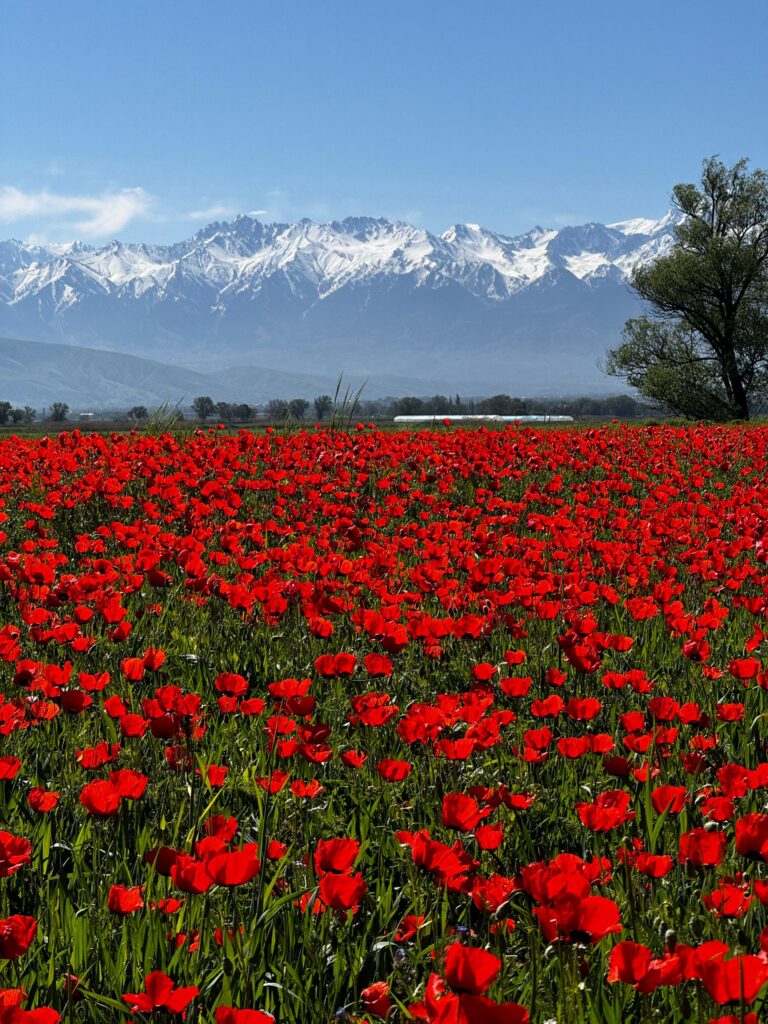
It’s truly beautiful and is our main treasure, together with the culture and traditions of the local people. You can spend a full day travelling just to reach some of these places and it really teaches you to sit back and see that beauty. Even for people like me who grow up surrounded by it.
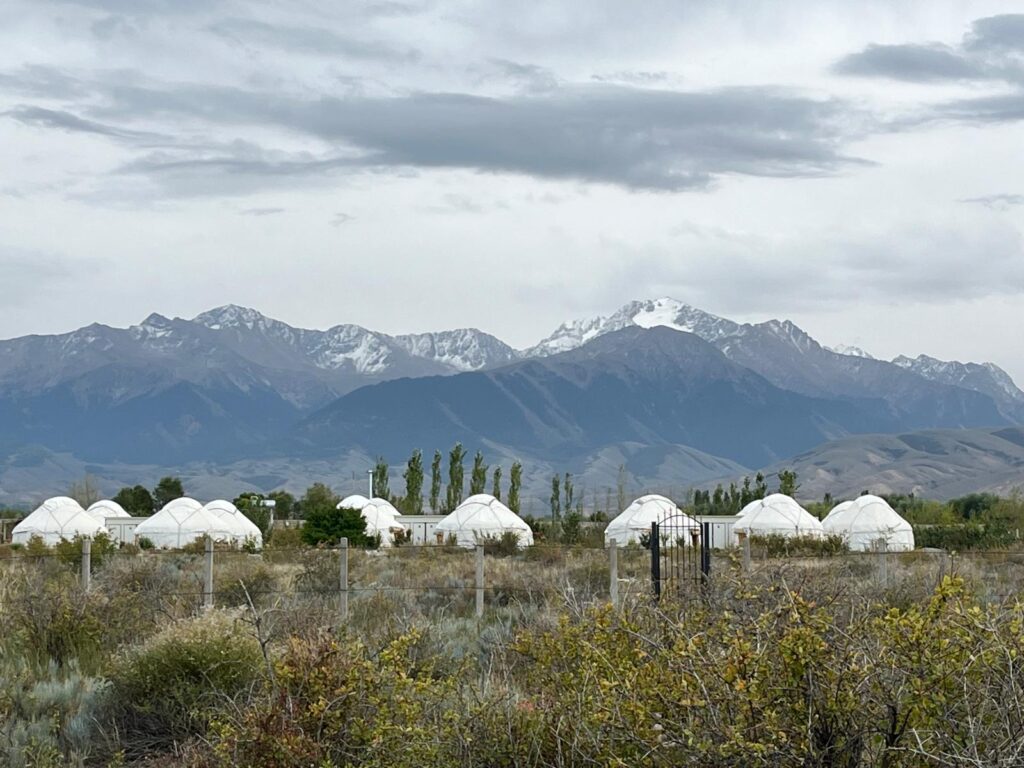
Some places are above average altitude but we prepare everyone for that in advance and I really love that we stay in some gorgeous places, like on the shore of a lake at a yurt camp which is a favourite for guests. One of the things that everybody likes in Almaty and Bishkek is arriving in the centre of these large cities with lots of traffic and people around, and seeing the mountains covered in glaciers in the background.
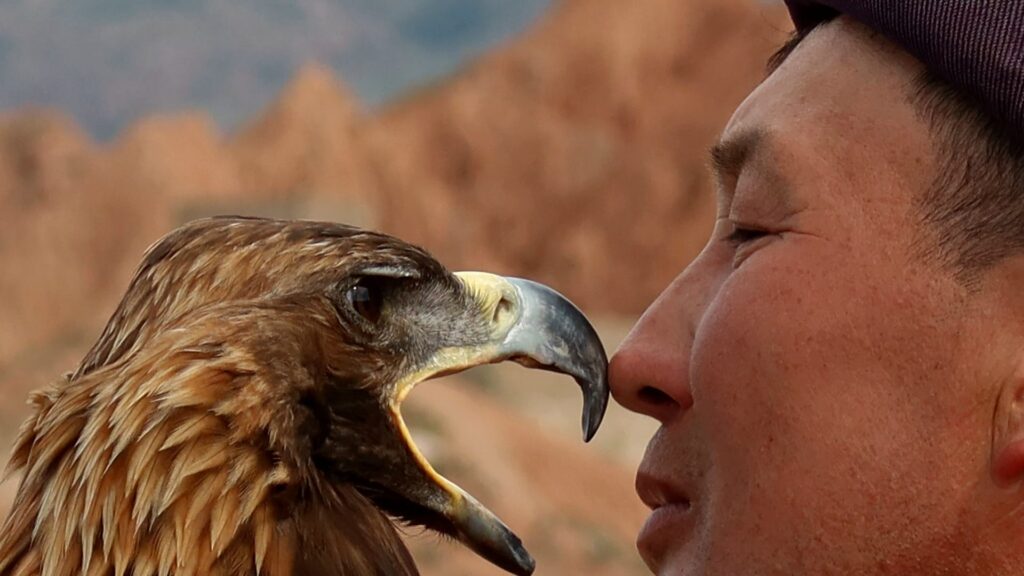
As for wildlife, due to extensive hunting in the 19th and 20th centuries most animals are under protection and live in very remote areas so guests will mostly see birdlife like geese, ducks, falcons and kites circling in the skies – and the eagle hunter of course.
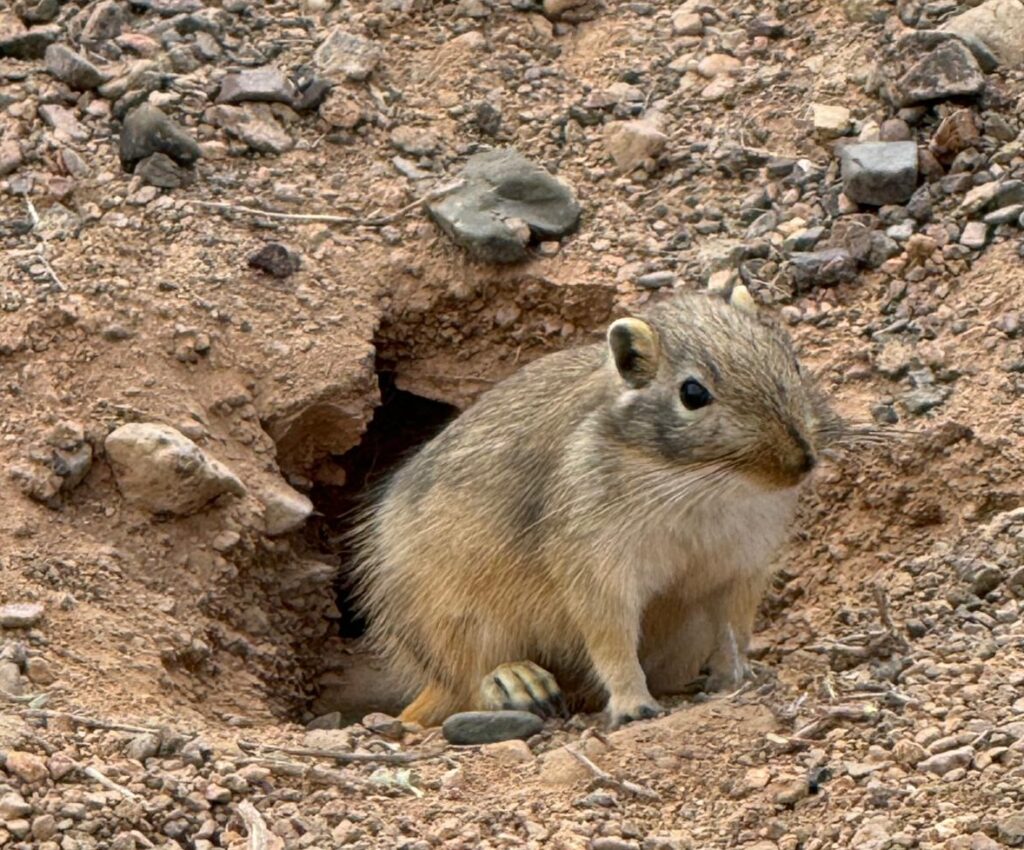
And squirrels! I know Aussies and Kiwis don’t have them in your countries, so it’s always a highlight for the Patchies to have a cute photo taken with them.
Our returning Patchies all loved getting to meet and interact with the local women on this adventure – what can you share with us about those interactions?
There are some really unique and special activities – for instance, in Almaty, we do a dance class with a local girl to learn a traditional Kazakh dance which is really special. The way she presents the moves comes from the inner world of every person with a nomadic background from Kazakhstan’s history.
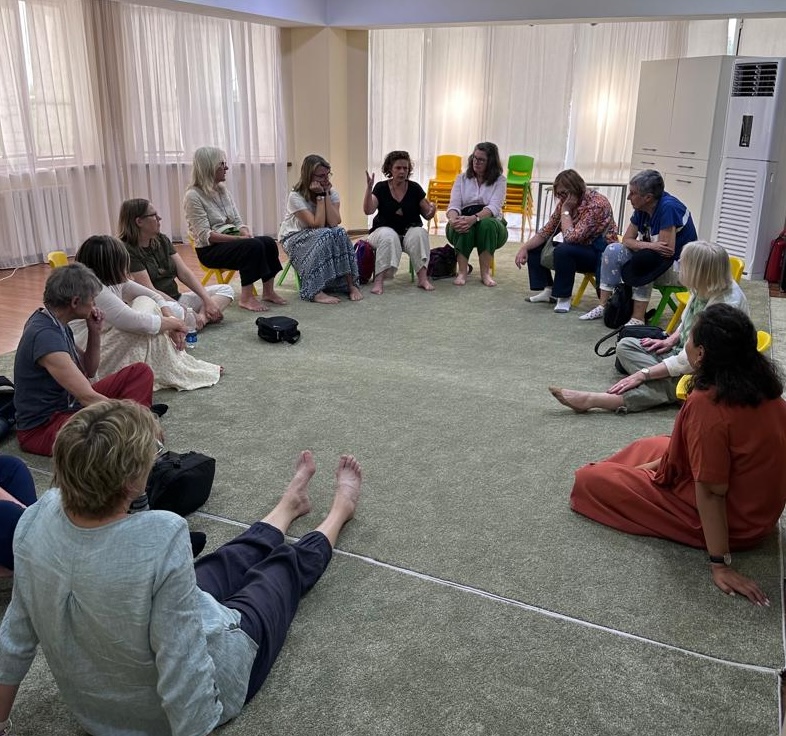
There is another lady they will meet in Kyrgyzstan, she is my personal favourite because in my eyes she’s a superhero! She started and manages a kindergarten and lobbies the government for new regulations to make it easier to open more kindergartens, as there is a lack of them here.
I can see and feel how amazed the Patchies are when we arrive because they have the chance to talk about gender and cultural differences together and how it is a real challenge balancing your family life with a career.
They’ll meet local ladies on the street doing their shopping, random strangers who are also just as curious to chat with the Patchies too, which is wonderful.
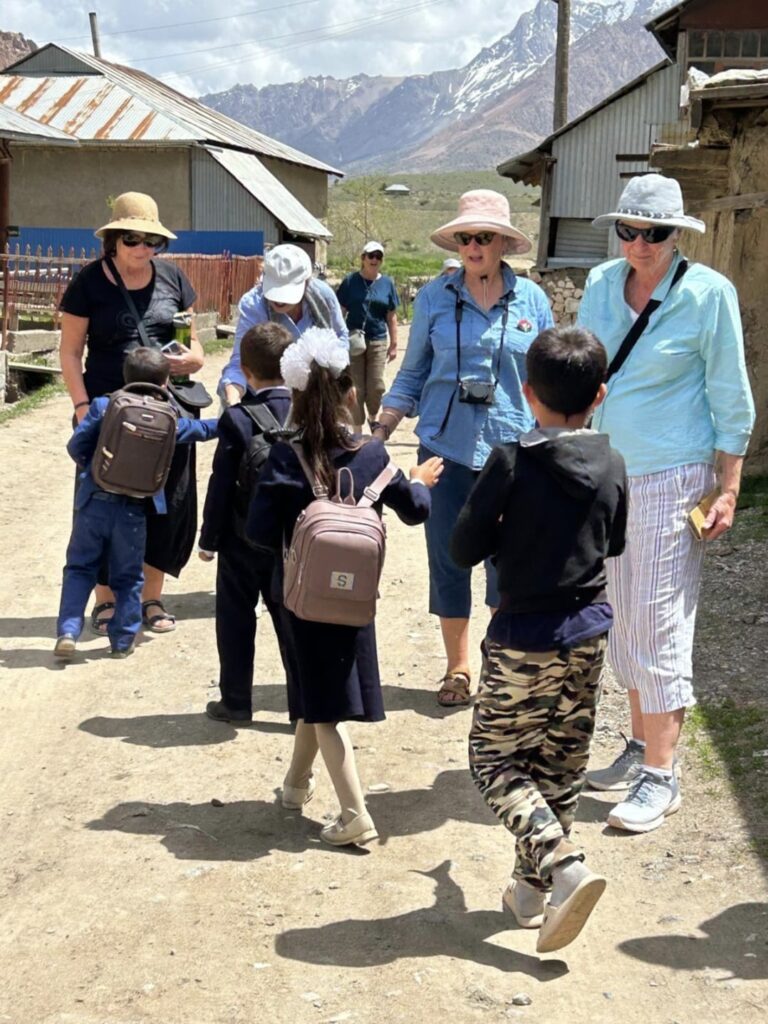
These opportunities are truly unique to Patch and have given me insights as well to see different perspectives on my own country. And a lot of inspiration too!
Patchies are always a bit shocked by how much food they’re offered on this adventure. What can you share with us about the cuisine in Central Asia?
I always tell my guests ‘Food is our love language!’. If someone really cares about you they don’t ask, ‘How are you?’, they ask, ‘Are you eating well?’. We have very different customs around eating to Australians, New Zealanders and other Western cultures who have been brought up not to leave food on their plate. We’re brought up that way too, but it’s different when you’re a guest. If your plate is empty when you’re a guest, then it means we have failed as your host!
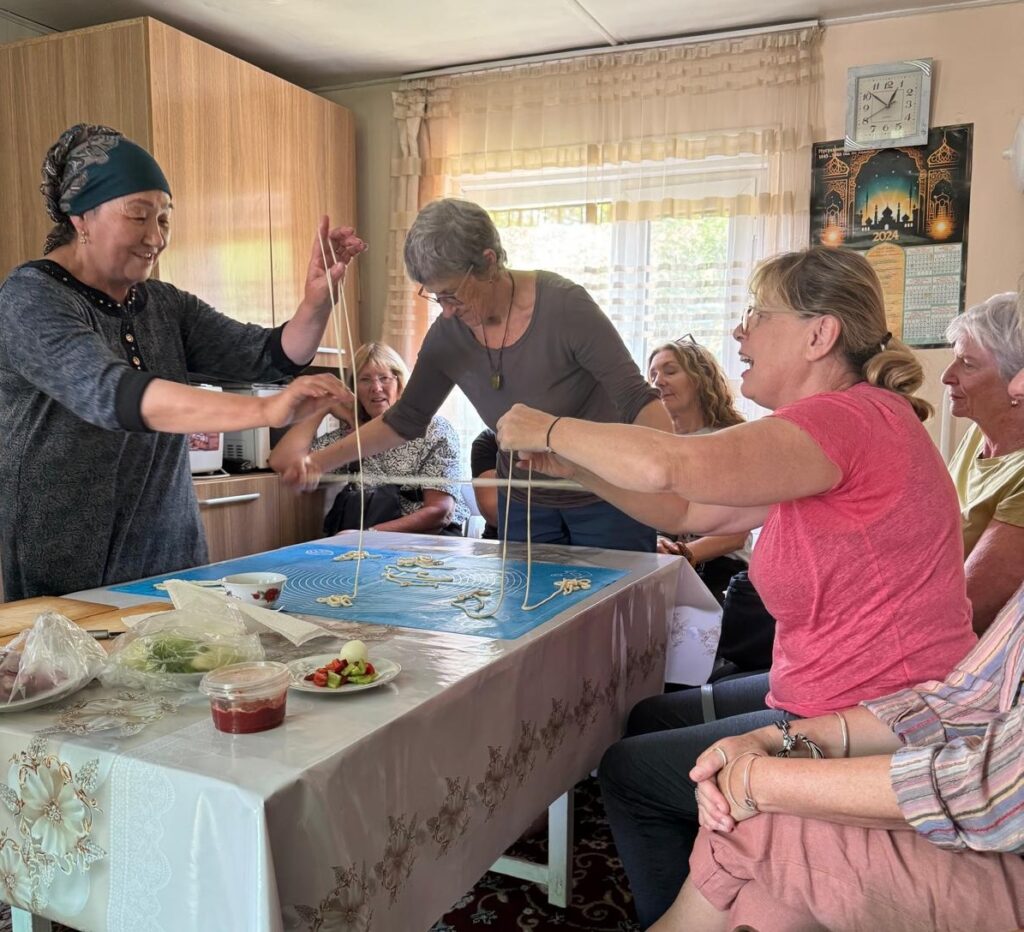
Food is really central to any gathering. It’s hard to find a balance but it’s inevitable that there will be a lot of food and the families we visit always use leftover meals so guests are never expected to finish it all. Locals that don’t work in tourism are always surprised that Aussies and Kiwis don’t eat that much!
Talk us through how you prepare for the trip. What’s it like meeting the Patchies and what does a typical day look like for you?
One of the secrets to having a great tour is being well prepared in advance! For me, I’m always reviewing the itinerary for changes, checking small details and making sure that the unique activities Patch does are arranged.
Of course, everyone’s a little nervous that first day (even me!), but as the Patchies are all women, I know they’re usually very well traveled and have chosen this trip because they’re comfortable with this kind of travel. That helps me to relax too, so I can feel closer to the group right from the beginning and we all have the same excited vibe.
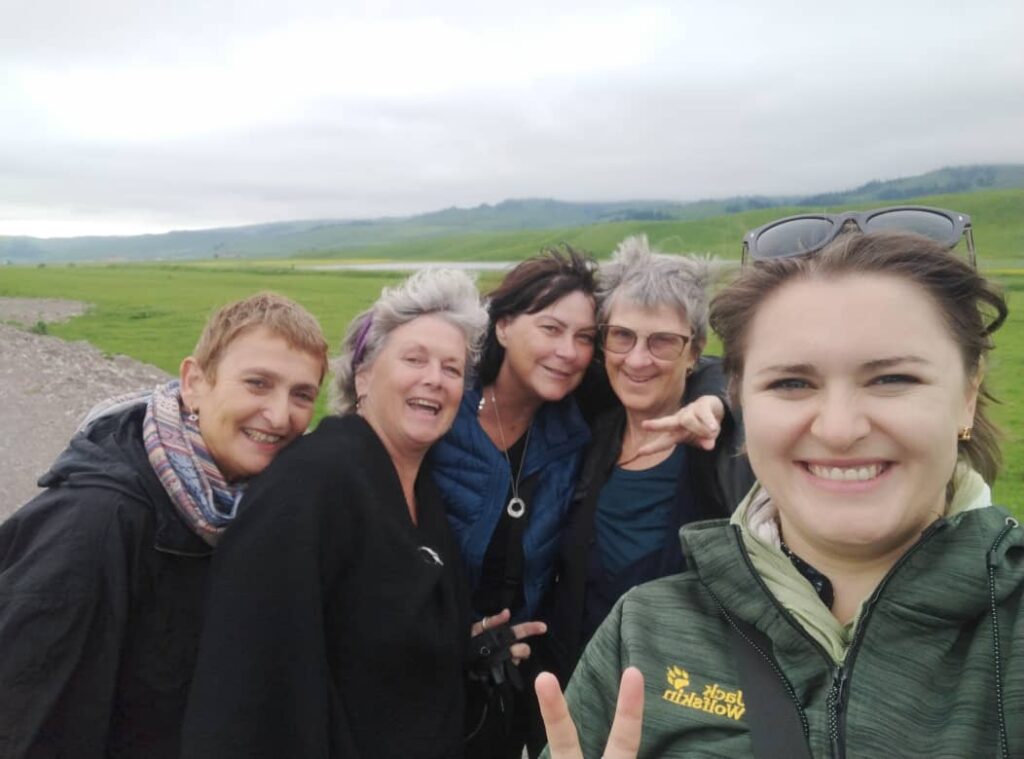
One of the things I love about Patch is that the group gets to meet each other in the WhatsApp chat weeks before they arrive, learning about each other and finding out about each other’s backgrounds. It helps people to relax. I like people to know they can just be themselves, that they can relax because I’m a local and will share local experiences with them and that feeling of ease gets shared amongst the group.
As far as what my day looks like, it starts early around 7 to 8.00am and finishes around 9 or 10pm. First thing in the morning, I always make sure I see how everyone’s night passes for them, as sometimes things happen overnight and you don’t know about it until the morning.
If it’s a driving day, there’s checking out on time, making sure everyone is present and nothing is forgotten. I might be organising little activities and along the way, organising lunch or making sure we’re on time for a workshop so we can beat traffic. I’m always preparing in advance on those days – they can be a little tiring for the group but come evening time, everyone is really grateful and appreciative that you pushed them to make the effort.
When the Patchies go to rest late in the afternoon, that’s my hour to catch up with phone calls and messages, or to organise extra things before dinner and I always take 15 minutes for myself just to have a cup of coffee and regroup for the next activities.
The evenings are nice because this is when everyone shares their impressions of the day. It’s always interesting participating in those conversations, as I often pick up on the things the Patchies really loved or little things we can change for the next adventure.
Do you have a favourite memory or experience you’ve had with a guest from your guiding experience?
I’d have to say it was with one of the Patch groups last year. I was just so incredibly lucky to have twelve ladies who just went so well with each other. We had so much fun! They were all such easy-going personalities and had a very cheerful attitude towards everything. But the most amazing thing for me was that they were willing to participate in the activities. Sometimes it can be challenging, as you don’t want to push people to do them but you do want them to be happy with their choices and their time.
There’s no Wi-Fi at the camp we stayed at, so I taught another group of Patchies to play cards. Just a simple card game that we know here in these two countries called, ‘Durak’ which translates to, ‘The Fool’. Sometimes it can be difficult for people to figure out, but the Patchies really hooked into it and after we said goodbye and they moved on with the adventure, they kept sending me photos saying, ‘Hey Nika, here’s a picture of us playing cards again!’. That was really very heartwarming.
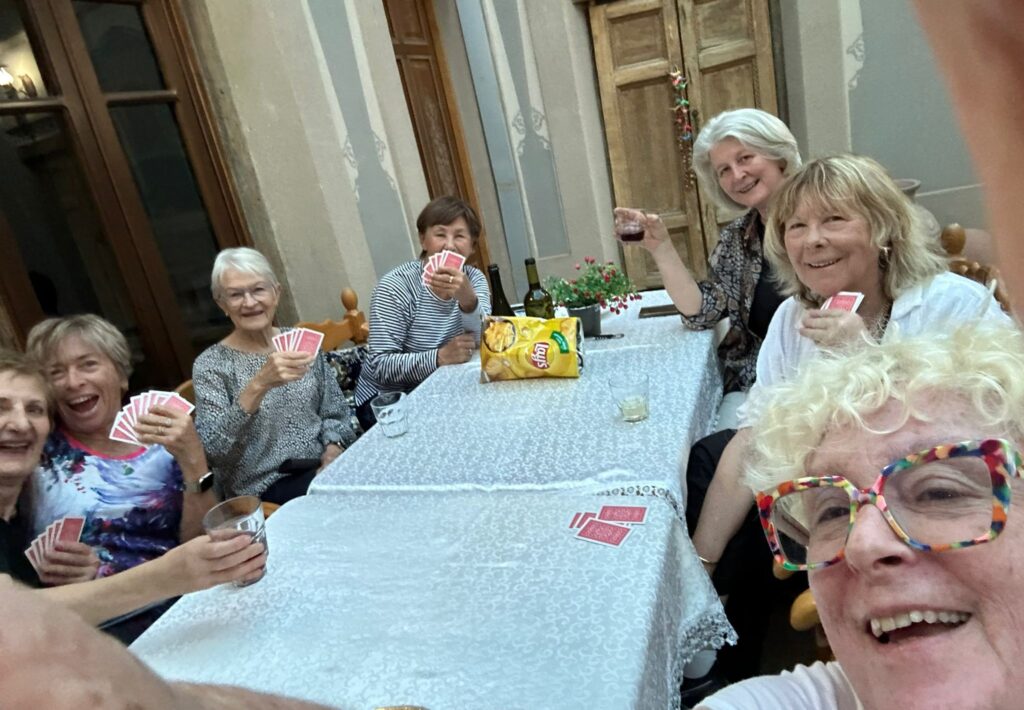
What’s it like for you when you have to say goodbye to your guests and how do you spend your time when you’re not guiding?
The final days are always difficult, especially when you have such an easygoing group who are fun to travel with. Even though you know you’ll stay in contact, it’s not the same, as you’ve made wonderful memories together and you just have to accept that you each need to return to your lives.
It’s fulfilling to see that my guests are also sad to say goodbye to me and to each other. They’ve spent almost three weeks together and really bond so it makes me happy to know they’ve made new friends and will be going home, not just with pictures and souvenirs of their adventure, but with new friends. I think that’s the most important thing in anybody’s life and I have a sense of knowing that I was a part of that. I helped to make that happen and if I manage to fulfill a little request or make someone’s wish come true, it’s really heartwarming and rewarding. Saying goodbye is bittersweet but I know I’ve accomplished something and that’s one of the things that has kept me guiding all this time.
After a trip I make sure I catch up on sleep and then I catch up with friends. It’s so easy to fall out of your social circle as a guide when you’re away, so if you don’t follow up with those relationships you can lose them.
I also really love mountain skiing! I’m always very excited for the first powder after the guiding season has finished and of course, I love to travel! I’ll never give it up because it’s truly a way to discover yourself, the world and gain new knowledge.
Do you have any tips for anyone wanting to come along on our Silk Road & Stans Adventure?
Be prepared for LOTS of delicious food! You’ll be doing activities with a bit of walking involved and have a few long days on the road, so be prepared for that too.
I recommend reading some books on the Silk Road and in particular, a book called ‘The Great Game’, by Peter Hopkirk.
But my best tip for anyone wanting to experience this adventure is to come with an open mind and your best mood possible and you’ll have the best time!
It’s a long way to come and this region is not very well known abroad but if you come, I promise it’s a once in a lifetime experience and not like anything you expect. You’ll see completely different countries and will be rewarded with the landscapes, so much history and meet the local people of the Stans.
If you had to choose one thing you love most about guiding what would it be?
The people! My colleagues who I’ve known for awhile now and the families who own the guest houses and those who provide the workshops and the meals in the homestays.
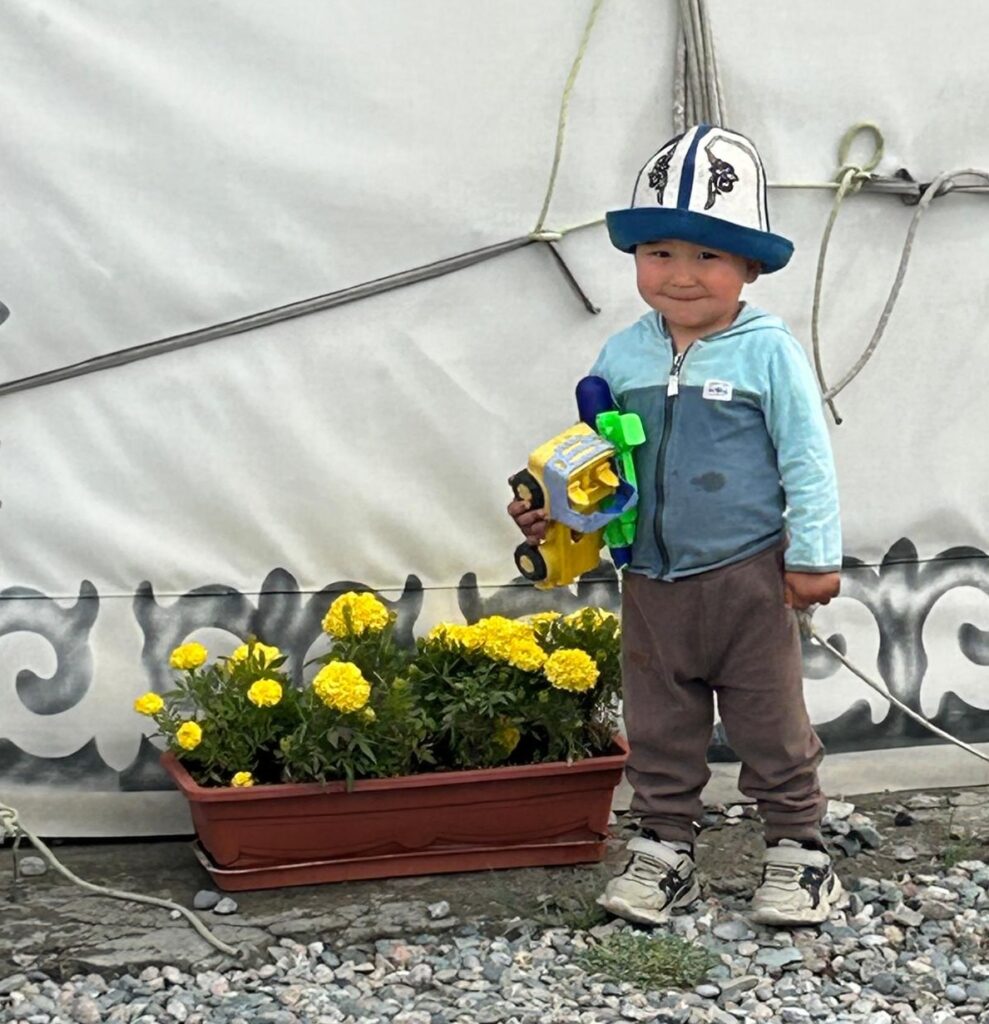
It’s so nice to stay in touch with them and see how they’re developing. I revisit these places so many times and they’re always beautiful, but for me it’s the people that I love the most.
What are you looking forward to most with the Patchies this year?
Playing more cards!
I also always look forward to taking them to my hometown, Karakol too, because we usually have a home cooked meal and they are incredibly tasty. I also can’t wait to take them to the yurt camp on the shores of Issyk Kul lake as well.
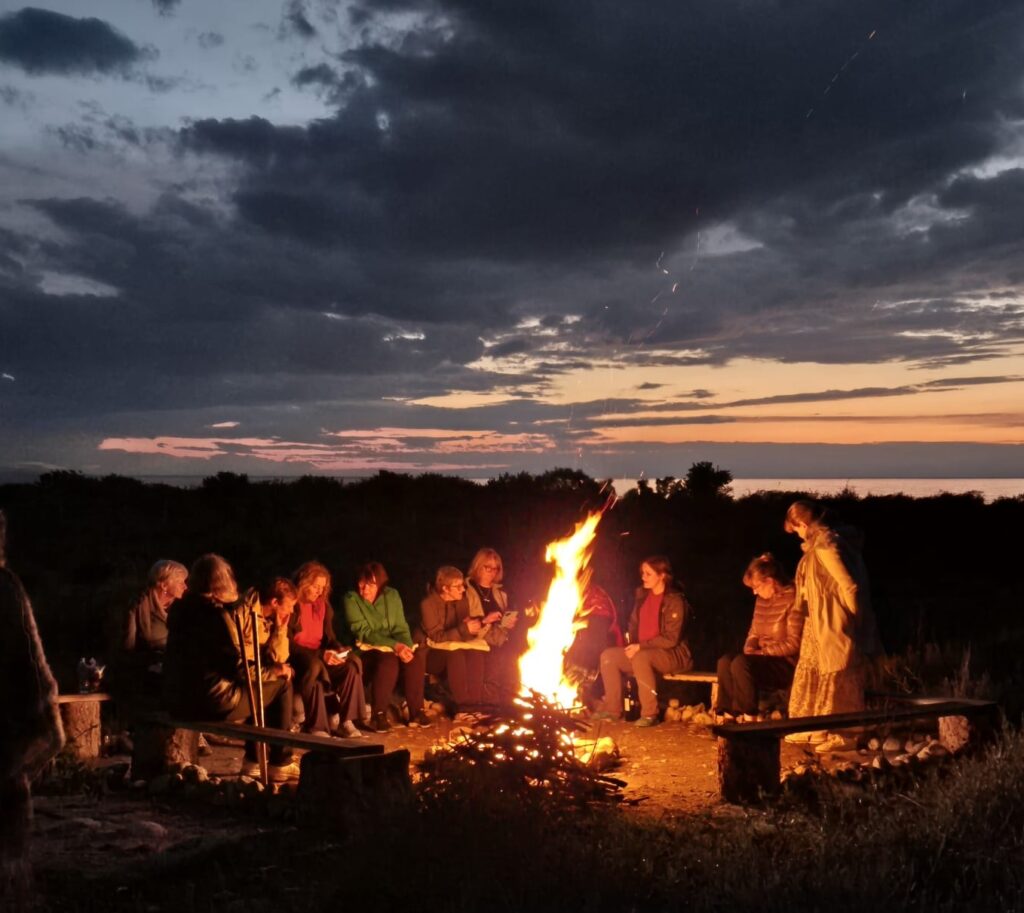
We usually have some free time before dinner to have a bonfire, grab a beer or a wine or just a cup of tea and just take in the amazing landscape of the mountains touching the lake at sunset.
I can’t wait to meet my Patchies, I think this season is going to be amazing for all of us!
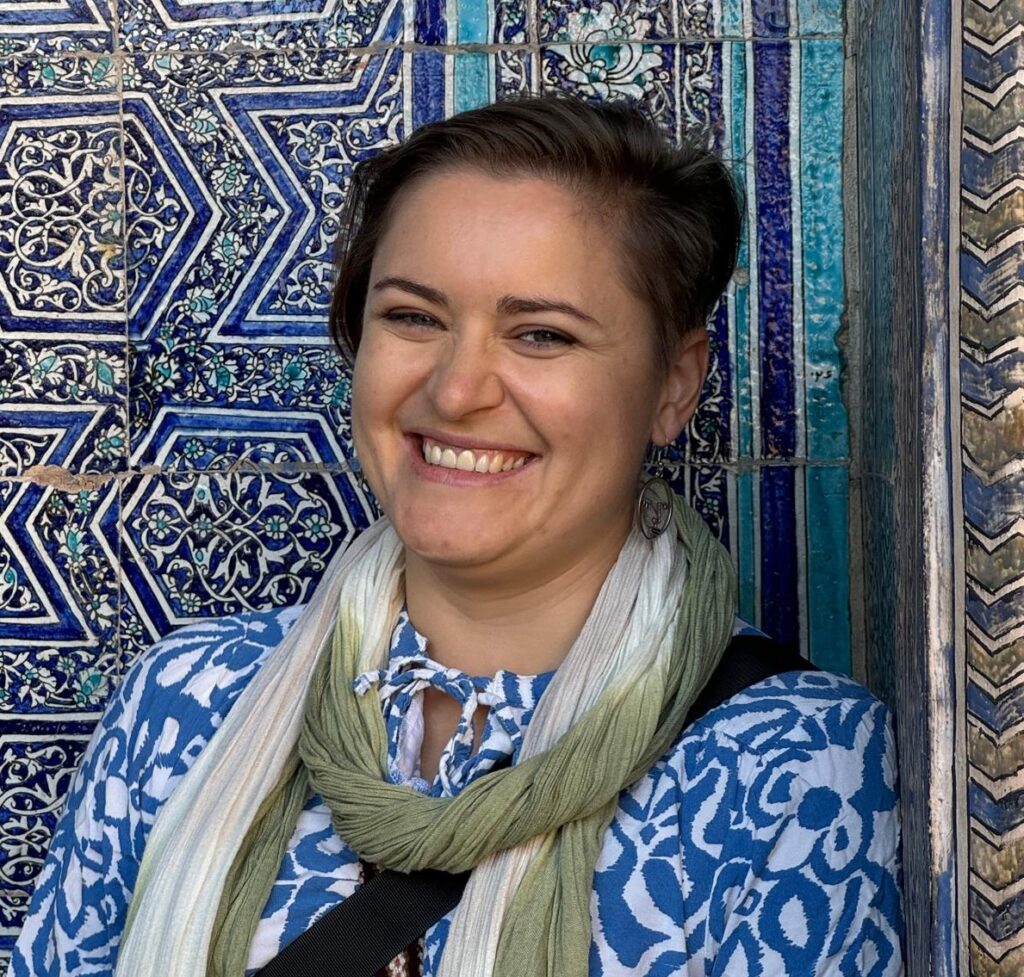
Are you ready to get to know the locals in Kyrgyzstan and Kazakhstan too? Come join us on our 23-Day Silk Road & Stans Adventure!
You can book in a time for a call with Claire and she’ll share everything you need to know.
And if you love to play cards like Veronika, here’s a link she’s shared so you can get together with your girl gang and play ‘Durak’, (The Fool) too!